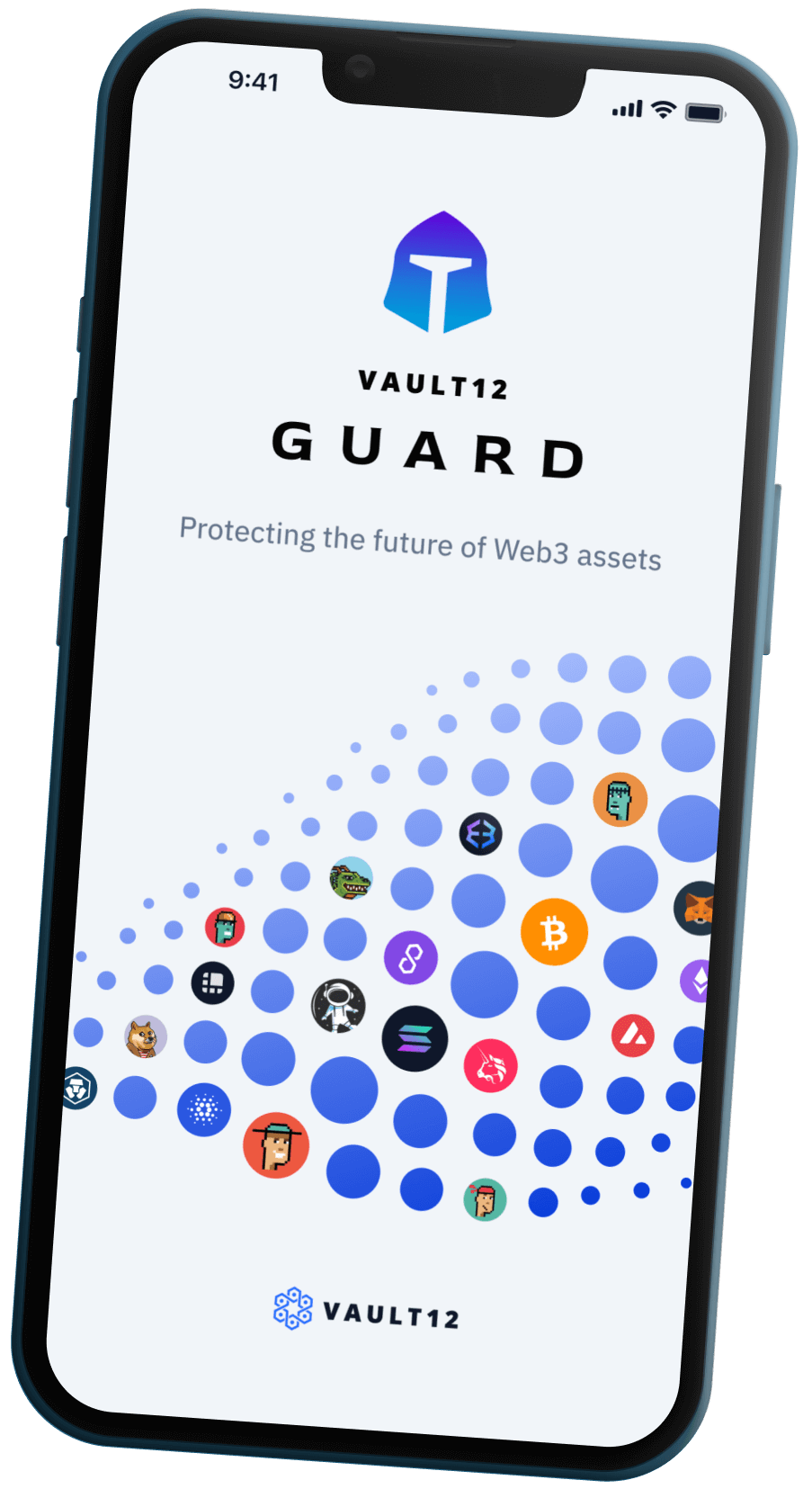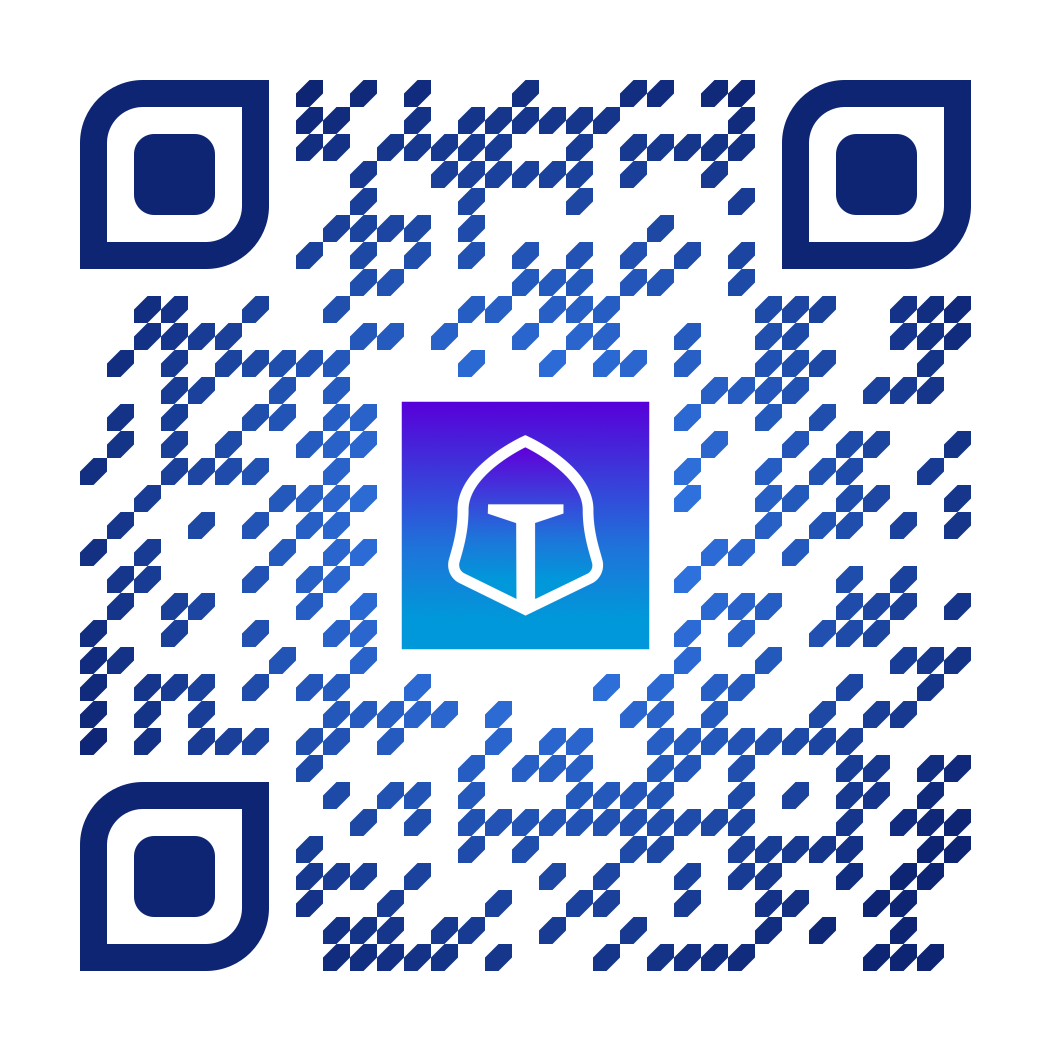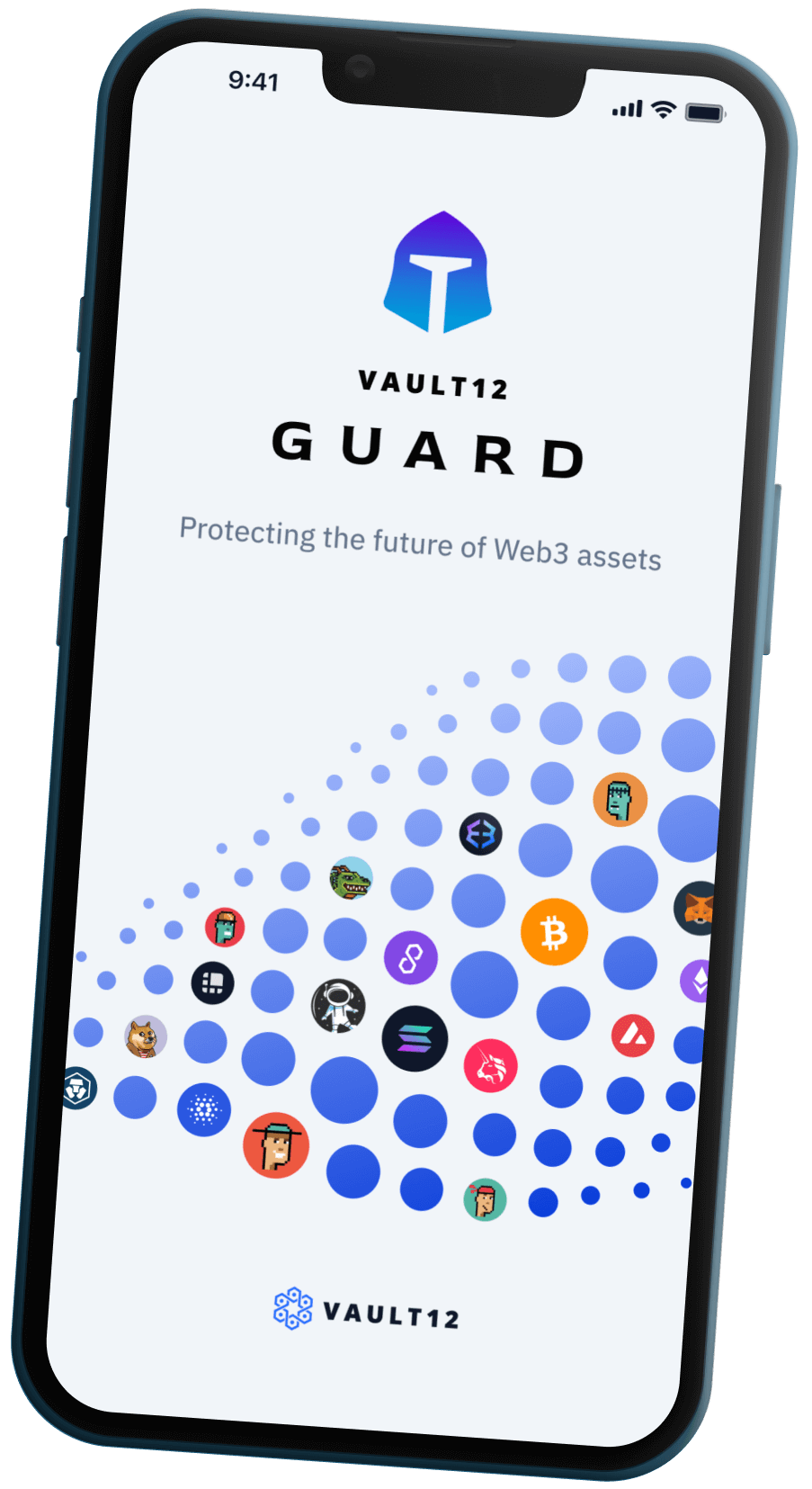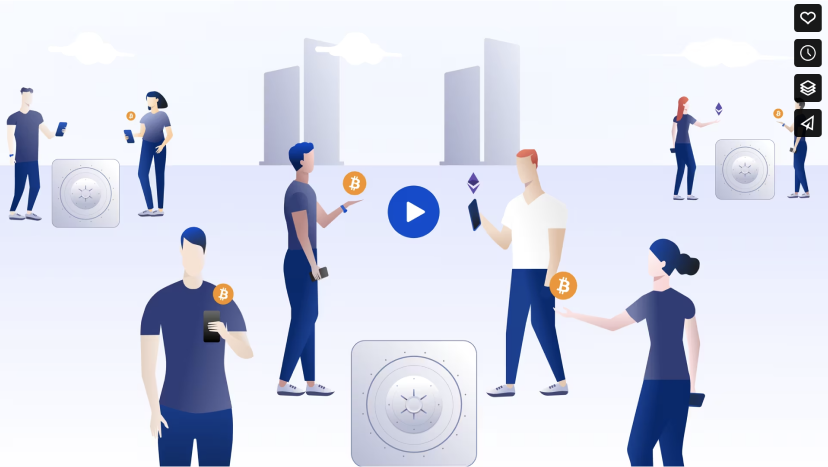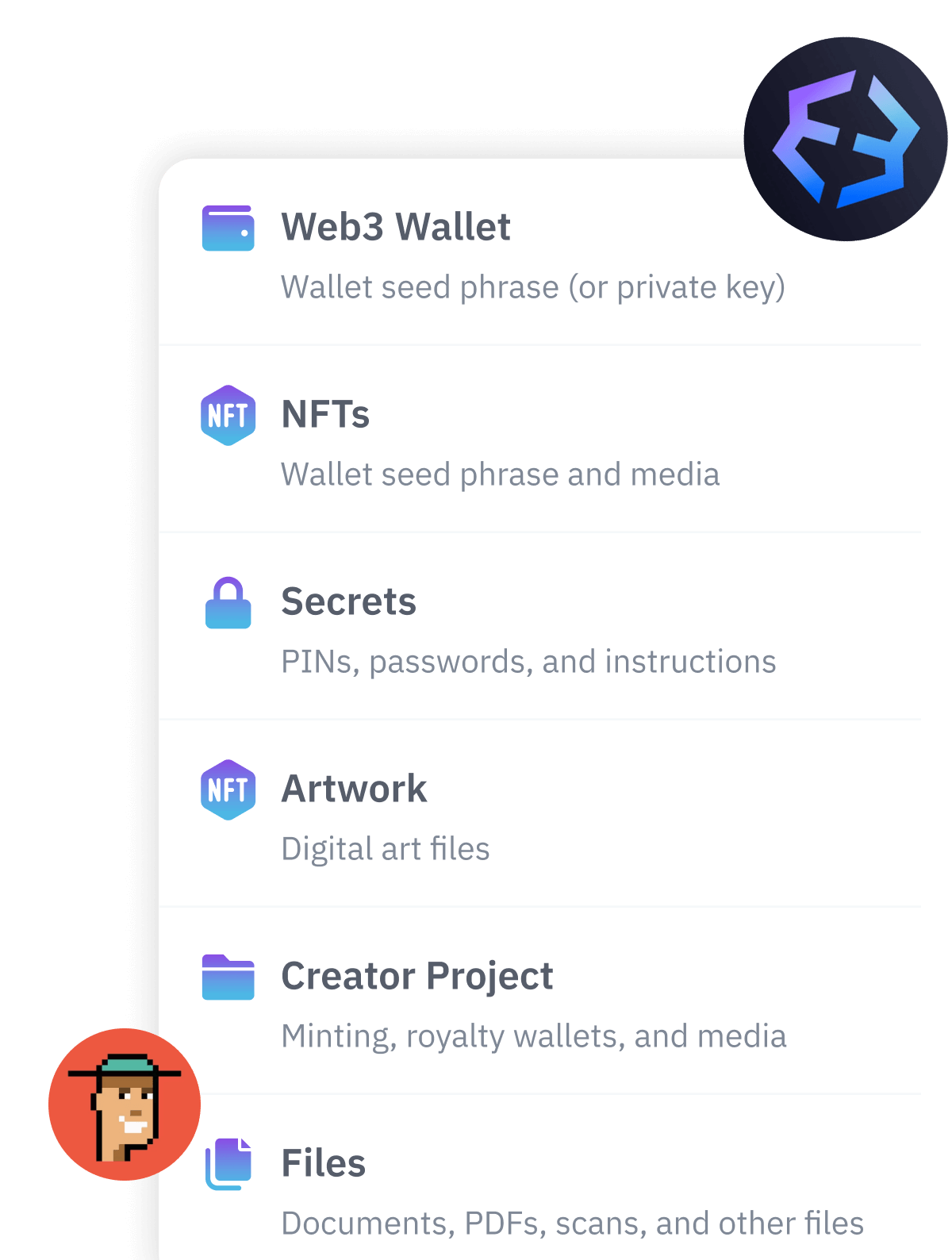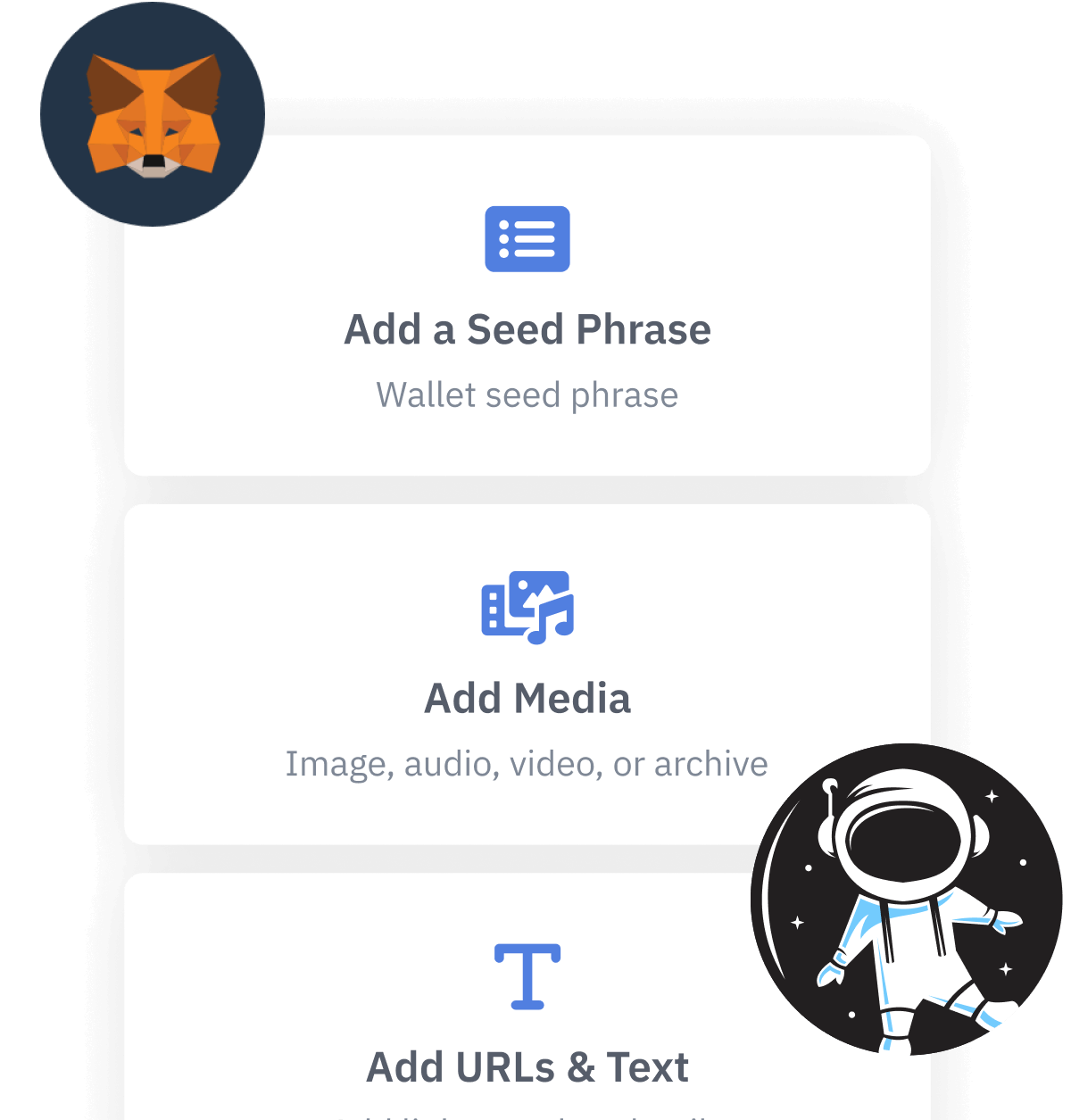Blockchain
A blockchain is a digital ledger that processes sequential "blocks" of data using a distributed computer network where each participant computer that contributes work acts as a node. This is different than traditional databases, which for decades tended to process and store data in a centralized location, and relied on a small number of very powerful computers.
You can think of a blockchain like a worldwide chain of data where the newest blocks are constantly being appended by many participants, and older blocks in the chain will forever reflect the original data.
The first blockchain network, Bitcoin, was publicly released in 2009 by an individual or group using the pseudonym Satoshi Nakamoto. There are now a wide variety of blockchains, both public and private, using a diverse set of operational mechanisms that are designed to meet each blockchain’s unique goals. Some blockchains are designed to process many transactions very fast, some are designed to process larger pieces of data, some are designed to be slower but extra-secure ... it all depends on what that blockchain's designers saw as the operational need that they were trying to fill.
The main layer of a blockchain is referred to as a "Layer 1" blockchain, which distinguishes it from any additional blockchains that may be created to extend the capabilities of the Layer 1 blockchain. For example, the Lightning Network is a "Layer 2" that extends the functionality of the Bitcoin blockchain by offering faster, cheaper peer-to-peer transactions that are executed "off-chain" and periodically added back to the main Bitcoin blockchain.
The Ethereum blockchain has tens of Layer 2 blockchains that extend its capabilities, with some focusing on gaming, some on crypto trading, and some simply on increased performance. Data added by a Layer 2 blockchain to a Layer 1 blockchain are sometimes called "Rollups," since they add a distilled sum of off-chain transactions to the Layer 1 chain as a "rollup" of many more individual transactions. As described on the Ethereum web site, "Rollups bundle (or 'roll up') hundreds of transactions into a single transaction on layer 1. This distributes the L1 transaction fees across everyone in the rollup, making it cheaper for each user."
Private blockchains, sometimes run by large organizations, can also be called “permissioned blockchains,” since using them requires special permissions.
Key features
- Decentralization: Public blockchains are decentralized, and no single authority controls the network. (In contrast, private blockchains often have centralized characteristics.)
- Transparency: Many public blockchains are written using open source code, and anyone can view the transaction history of a public blockchain. (However, some blockchains are too large for a standard computer to download and analyze in their entirety.)
- Immutability: Once data is recorded, it cannot be modified or deleted without altering subsequent blocks — something that becomes increasingly improbable over time.
Applications
- Cryptocurrencies: Bitcoin, Ethereum, and thousands of other digital currencies and tokens
- Smart Contracts: Self-executing contracts with terms directly written into code, common in platforms such as DeFi, but can run any kind of application including tokenization of assets, supply chain tracking, voting, and much more
- Digital Identity: Secure, verifiable credentials that blockchain participants may control
Related terms

Vault12
Vault12 is the pioneer in crypto inheritance and backup. The company was founded in 2015 to provide a way to enable everyday crypto customers to add a legacy contact to their cry[to wallets. The Vault12 Guard solution is blockchain-independent, runs on any mobile device with biometric security, and is available in Apple and Google app stores.
Vault12 is NOT a financial institution, cryptocurrency exchange, or custodian. We do NOT hold, transfer, manage, or have access to any user funds, tokens, cryptocurrencies, or digital assets. Vault12 is exclusively a non-custodial information security and backup tool that helps users securely store their own wallet seed phrases and private keys for the purpose of inheritance. We provide no legal or financial services, asset management, transaction capabilities, or investment advice. Users maintain complete control of their assets at all times.
You will lose your Bitcoin and other crypto when you die...
...unless you set up Crypto Inheritance today.
It's simple — if you don't worry about crypto inheritance, nobody else will — not your software or hardware wallet vendors, not your exchanges, and not your wealth managers. So it's up to you to think about how to protect the generational wealth you have created, and reduce the risks around passing that crypto wealth on to your family and heirs. What are the challenges with crypto inheritance?
- Crypto Wallets are difficult to use and do not offer crypto inheritance management. In fact, most of them tell you to write down your seed phrase on a piece of paper, which is practically useless.
- Some people back up their wallet seed phrases or private keys on paper, local devices like hardware wallets or USBs, or in the cloud. All of these options have severe drawbacks that range from hacking to accidental loss to disrupted cloud services.
- Software wallets operate on specific blockchains, yet your crypto assets span multiple blockchains. For inheritance to work, you must be able to manage inheritance across every blockchain — now and forever.
Pioneering Crypto Inheritance: Secure Quantum-safe Storage and Backup
Vault12 is the pioneer in Crypto Inheritance, offering a simple yet powerful way to designate a legacy contact and pass on your crypto assets—like Bitcoin (BTC), Ethereum (ETH) and Solana (SOL) —to future generations. Built for everyday users yet robust enough for the most seasoned crypto enthusiasts, Vault12 Guard ensures your wallet seed phrases and private keys are preserved in a fully self-sovereign manner, across all Blockchains.
At the heart of Vault12 Guard is quantum-resistant cryptography and a decentralized, peer-to-peer network of trusted Guardians. Your critical information is never stored in the cloud, on Vault12 servers, or even on local devices—dramatically reducing the risk of a single point of failure. By fusing a powerful software layer with the Secure Element of iOS devices (Secure Enclave) and Google devices (Strongbox), Vault12 Guard locks down your private keys against present and future threats.
Our innovative approach harnesses social recovery, enabling you to appoint one or more trusted individuals or mobile devices as Guardians. These Guardians collectively safeguard your protected seed phrases in a decentralized digital Vault—so there’s no need for constant lawyer updates or bulky paperwork. Should the unexpected happen, your chosen legacy contact can seamlessly inherit your crypto assets without compromising your privacy or security.
Preserve your digital wealth for generations to come with Vault12 Guard—the simplest, most secure way to manage crypto inheritance and backup.
Take the first step and back up your crypto wallets.
Designed to be used alongside traditional hardware and software crypto wallets, Vault12 Guard helps cryptocurrency owners back up their wallet seed phrases and private keys (assets) without storing anything in the cloud, or in any single location. This increases protection and decreases the risk of loss.
The first step in crypto Inheritance Management is making sure you have an up-to-date backup.
The Vault12 Guard app enables secure decentralized backups, and provides inheritance for all your seed phrases and private keys across any blockchain, including Bitcoin, Ethereum, and others, and for any crypto wallet.
Note: For anyone unfamiliar with cryptocurrencies, Vault12 refers to wallet seed phrases and private keys as assets, crypto assets, and digital assets. The Vault12 Guard app includes a software wallet that works alongside your Digital Vault. The primary purpose of this is to guard your Bitcoin (BTC) and Ethereum (ETH) wallet seed phrases, private keys, and other essential data, now and for future generations.

